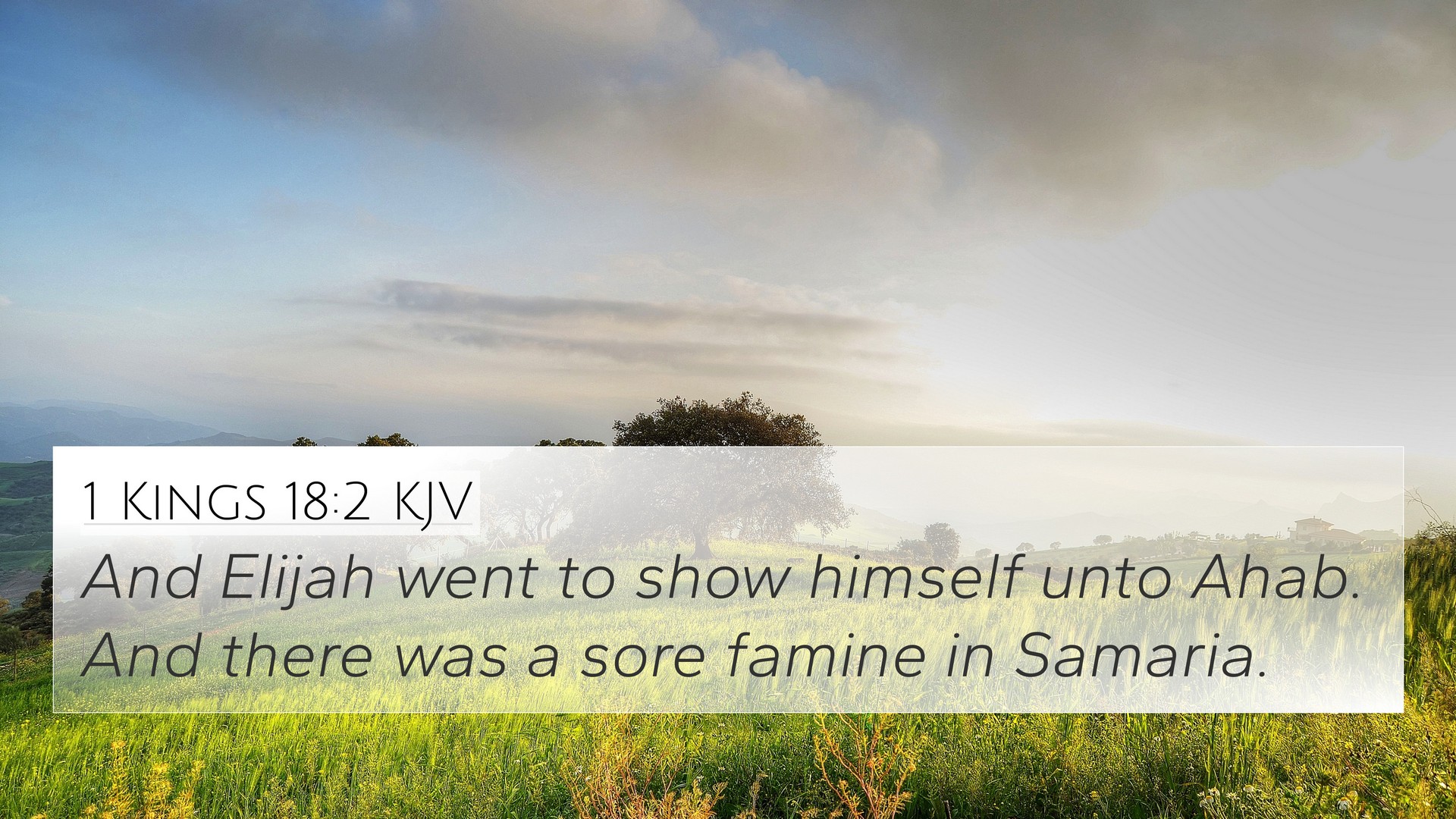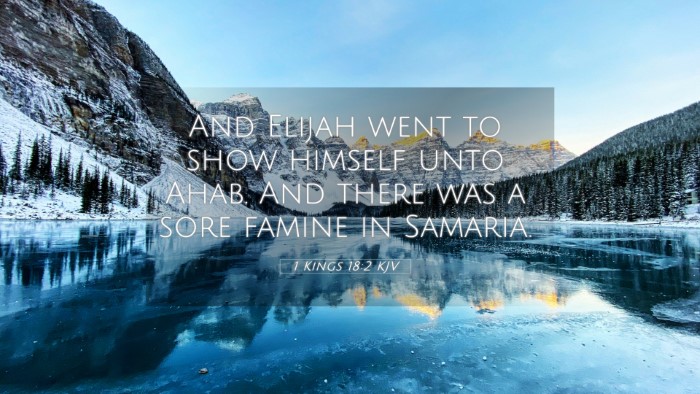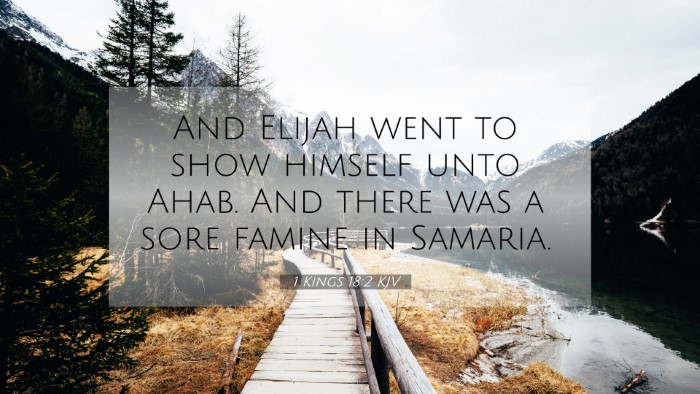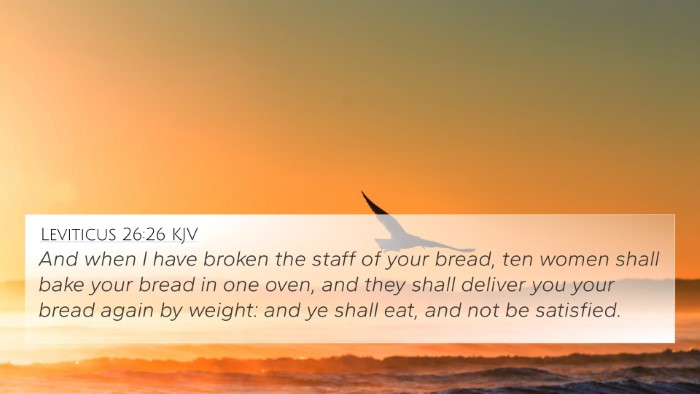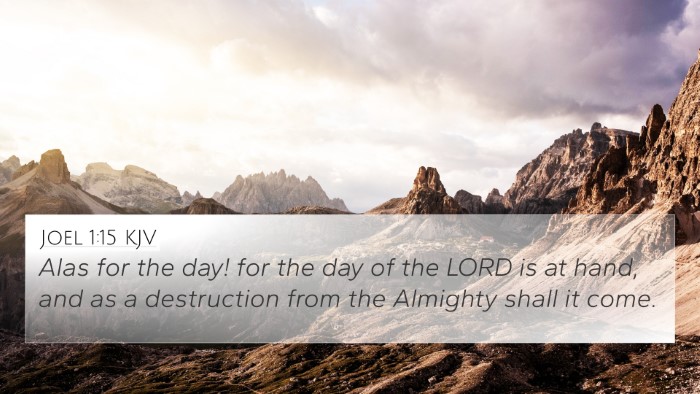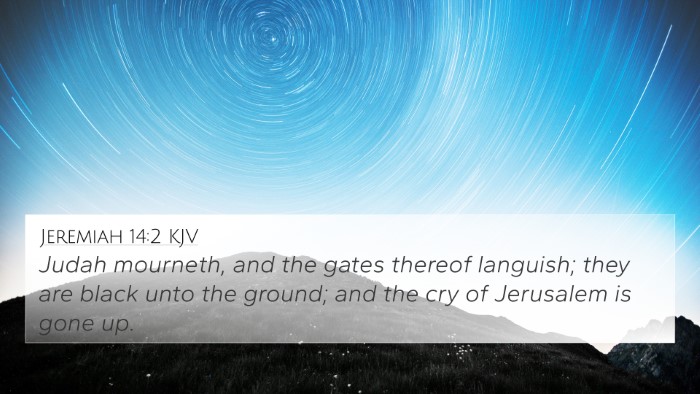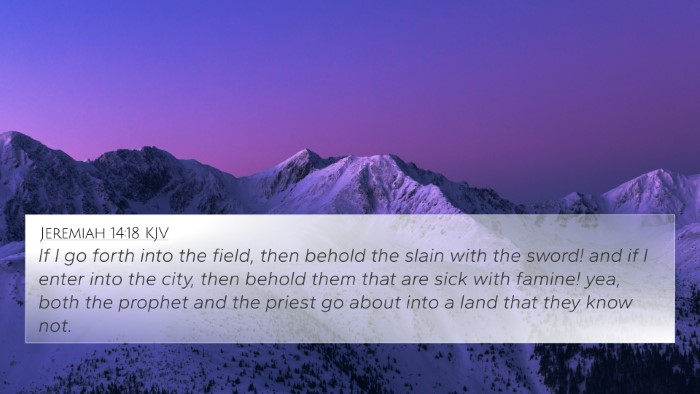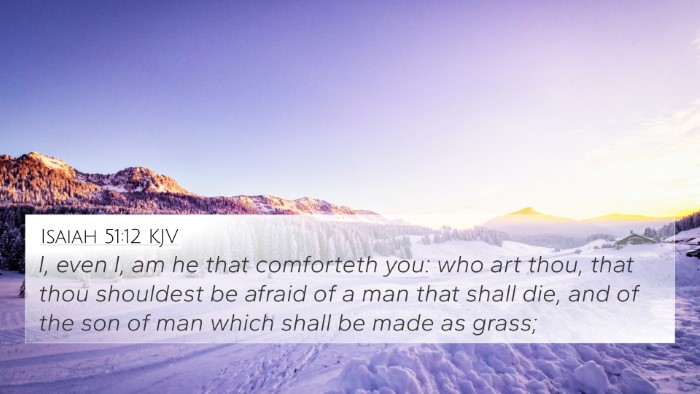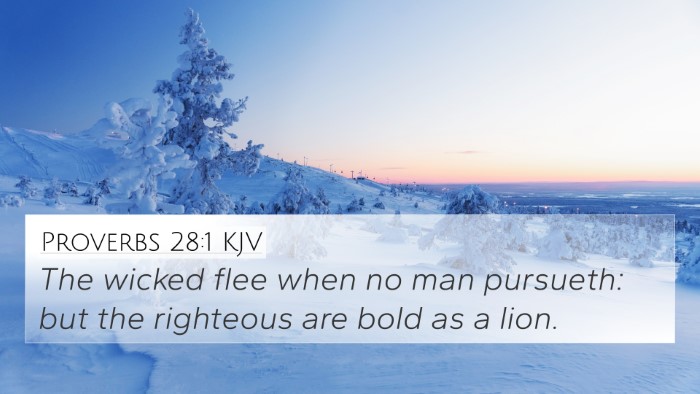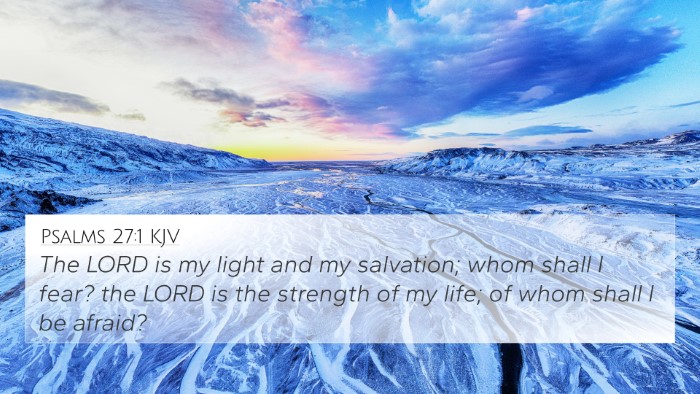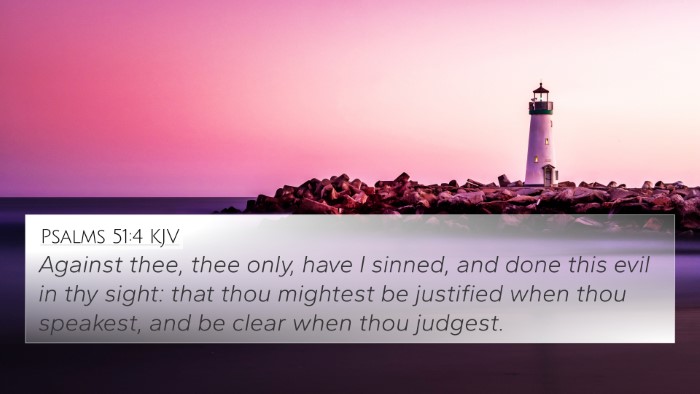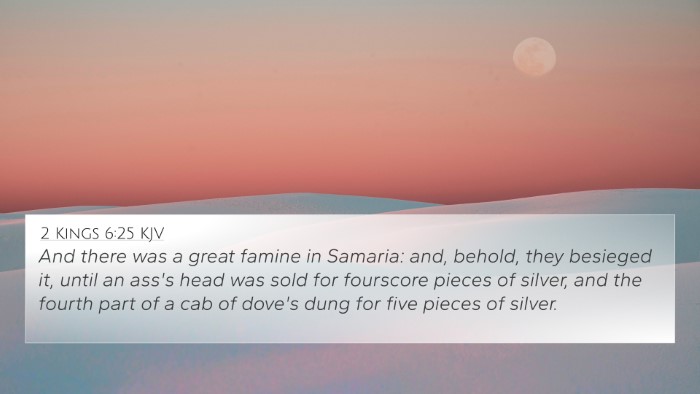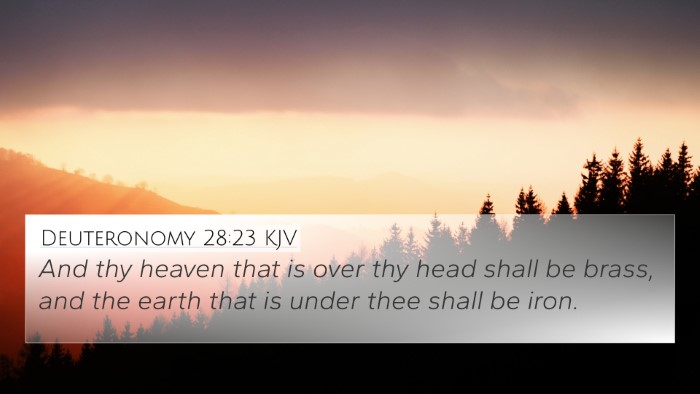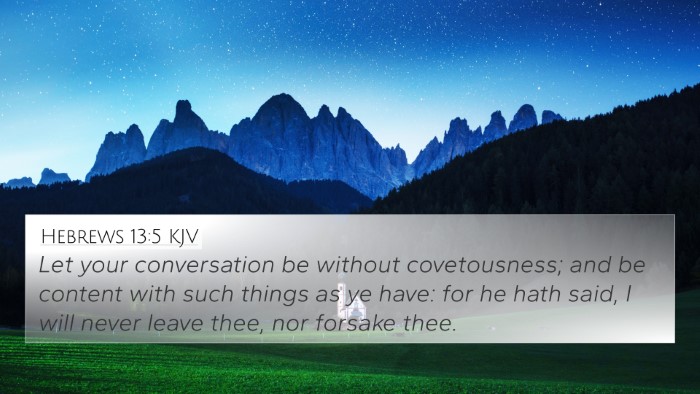Understanding 1 Kings 18:2
Verse: 1 Kings 18:2 - "So Elijah went to show himself to Ahab. And there was a severe famine in Samaria."
Verse Meaning and Context
This verse introduces one of the most pivotal moments in the narrative of Elijah, the prophet. It marks the beginning of a confrontation between Elijah and King Ahab, a king notorious for his idolatrous practices and for leading Israel away from the worship of Yahweh.
According to Matthew Henry, this passage sets the stage for a crucial encounter that would demonstrate God's supremacy over Baal, the god Ahab and his wife Jezebel had been promoting.
Adam Clarke points out the socio-political backdrop of this moment, indicating that the severe famine in Samaria was a consequence of the nation’s unfaithfulness to God, which Elijah sought to address through his prophetic mission.
Albert Barnes adds that the mention of a famine not only serves as an indicator of God’s judgment but also acts as a motivation for Ahab to seek out Elijah, as the prophet held the key to resolving the drought through divine intervention.
Thematic Connections
This verse connects deeply with themes of:
- Judgment and Mercy: The famine symbolizes God's judgment on Israel for its sins, while Elijah’s appearance represents an opportunity for repentance and restoration.
- The Role of the Prophet: Elijah acts as a mediator between God and the people, emphasizing the importance of prophetic voices in guiding and rebuking Israel.
- Faith in Crisis: During the famine, the faith of the Israelites is tested, paralleling the trials faced by believers throughout scripture.
Cross-Referencing Biblical Texts
In exploring the connections between this verse and others, we find significant parallels that enrich our understanding:
- 1 Kings 17:1: Elijah’s initial declaration of drought as a result of Israel’s sinfulness.
- 2 Chronicles 7:13-14: God's promise to hear the prayers of His people during times of national calamity.
- Matthew 4:2: The severe testing of Jesus in the wilderness, which also involved fasting during a time of famine.
- Luke 4:25-26: Jesus references Elijah during a famine in Zarephath, showing the prophetic lineage and purpose.
- James 5:17-18: Elijah's prayer for drought and rain as an example of effective prayer in fulfilling God’s will.
- Deuteronomy 28:23-24: The curses for disobedience, including famine and drought upon the land.
- Isaiah 58:10; The call for God's people to engage in acts of righteousness during trials, echoing the need for repentance.
These references illustrate the recurring themes of divine judgment and the need for repentance throughout the Canon.
Inter-Biblical Dialogue
1 Kings 18:2 serves as a bridge between the Old and New Testaments, revealing the ongoing conversation about faith, obedience, and God’s faithfulness:
- Connections with the Prophets: Elijah's confrontation with Ahab links with later prophetic voices calling Israel back to fidelity.
- Jesus' Miracles: The miraculous provision of God through Elijah reflects the feeding miracles of Jesus, furthering the theme of divine sustenance.
- The Nature of True Worship: Elijah’s mission culminates in a demonstration of God's power that shapes the understanding of true worship, which resonates throughout the teachings of Christ.
Conclusion and Reflection
In summary, 1 Kings 18:2 is not merely a historical record but a deeply theological statement regarding God’s sovereignty, the consequences of sin, and the role of prophets in guiding His people. It connects with numerous scriptures, enriching our understanding through intricate cross-references.
As believers, we are invited to reflect on our own faith journeys. Like Elijah, we are called to step into challenging situations with unwavering trust in God’s ultimate plan, showcasing the connections between our lives and the scriptural narrative.
